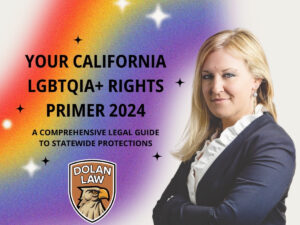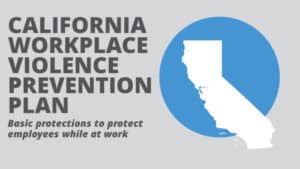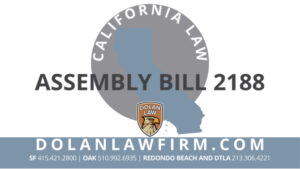
This week’s question comes from Ronald F. in Hercules, who writes: “I work for a security firm and have been a security guard for a number of years at a local mall. Recently, while making my rounds, I slipped and fell on a clear substance, badly injuring my back and hip. I presented my claim to my company, the security firm, which was accepted under its workers’ compensation policy. After learning that the spill was caused by a mall employee who worked at the information counter, I presented a claim to the mall. The mall is telling me I can’t bring a claim because I have workers’ compensation. But that is through my employer, and I do not work for the mall. What is going on?”
Ronald, you appear to be caught in the trap that is the workers’ compensation remedy rule. California’s workers’ compensation laws generally provide that workers’ compensation is the exclusive remedy against an employer for an employee’s injury or death that arises during the course and scope of employment.
Labor Code Section 3600 provides all of the essential conditions that must exist for the exclusive remedy rule to apply.
This rule does not normally extend to any other party that is not an employer. For example, had you been patrolling the parking lot and were struck by a driver who was not paying attention, not only would you be entitled to receive the workers’ compensation benefits from your employer, you could seek to recover from the driver those benefits not covered by workers’ compensation, such as damages for your pain and suffering.
At this time, you are probably thinking to yourself, “Exactly, and that is the same situation I have. I was working for the security firm, was injured on the job by the acts of someone else and should be able to seek recovery from both.”
However, based upon your question, you may not only be an employee of the security firm, but also a second or special employee of the mall.
In California, an employee may have two employers. This is known as “dual employment.” The “primary employer” typically loans or leases the employee to another employer – the “secondary” or “host” employer. The secondary employer typically controls the work of the loaned employee.
A California appellate court explained the rule as follows: “An employee may have more than one employer for purposes of workers’ compensation, and, in situations of dual employers, the second or ‘special’ employer may enjoy the same immunity from a common law negligence action on account of an industrial injury as does the first or ‘general’ employer. Identifying and analyzing such situations ‘is one of the most ancient and complex questions of law in not only compensation but tort law.'” (Santa Cruz Poultry, Inc. v. Superior Court (1987) 194 Cal.App.3d 575, 578.)
Essentially, both can avail themselves to immunity, provided they have complied with Labor Code 3602(d), which states in part that an employer may secure a payment of compensation provided to it by agreement by another employer by entering into a valid and enforceable agreement with that other employer and has obtained workers’ compensation coverage.
If there is, in fact, a dual relationship between the security firm and the mall, in order for the mall to be immune from liability, there must be a valid and enforceable agreement between the two with respect to workers’ compensation coverage and they have obtained the necessary workers’ compensation insurance. If the provisions of the labor codes have been met, then your recovery would most likely be limited to workers’ compensation.
However, if the dual relationship did exist, but the mall failed to enter into a valid and enforceable agreement or obtain the necessary insurance, then the mall could find itself exposed.
The fact that an employee has received workers’ compensation benefits from some source does not bar the employee’s civil action against an employer who is uninsured. Instead, if both employers seeks to be immune from tort liability, they both must purchase workers’ compensation insurance, or risk not being immuned at all.
Determining if one can circumvent the exclusive remedy rule requires a thorough investigation of the facts. I suggest you consider contacting an experienced attorney to advise you further on your legal rights and remedies.
Christopher B. Dolan is owner of the Dolan Law Firm. Email him questions to address in his weekly column in the San Francisco Examiner to help@dolanlawfirm.com










